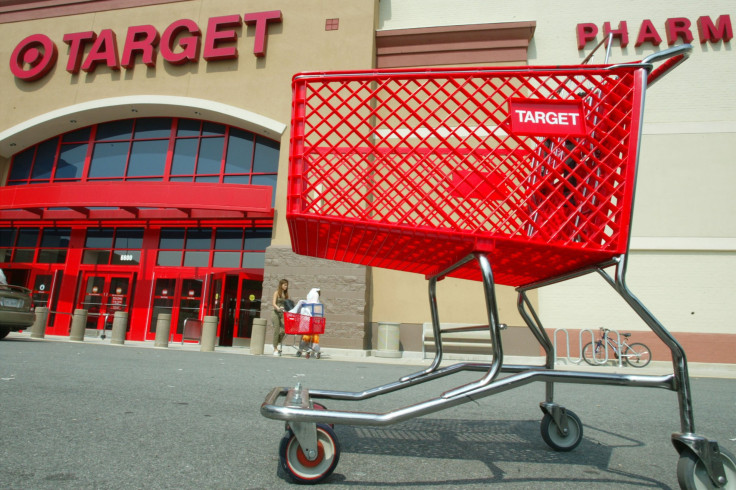Target, Walmart, Home Depot, Lowe’s Break Earnings Records During The Pandemic

Several big-box retailers were winners when it came to consumer spending during the pandemic as Target (TGT), Walmart (WMT), Lowe’s (LOW), and Home Depot (HD) all reported record sales for the quarter.
These retailers, unlike many others, kept their stores open during the coronavirus crisis as they were deemed essential businesses. Many retailers had to temporarily close their doors in March as they were labeled nonessential sellers during the pandemic as states across the country issued stay-at-home orders to prevent the spread of the virus.
Retailers like Target, which reported its second-quarter earnings on Wednesday, saw record sales with a comparable sales growth of 24.3%, compared to Q2 2019. The company said the growth was the “strongest the company has ever reported.”
A big reporting also came in for Target’s digital comparable sales, which increased by 195% or 13.4 percentage points of the company’s comparable sales growth, also compared to the same quarter a year ago.
Target saw a significant increase in its same-day services, which included order pick-up, drive-up and Shipt purchases, as consumers shifted away from in-store purchases to prevent the spread of the coronavirus. These sales rose by 273% or six percentage points of the company’s comparable sales growth compared to the second quarter a year earlier.
“We remain steadfast in our focus on investing in a safe and convenient shopping experience for our guests, and their trust has resulted in market share gains of $5 billion in the first six months of the year,” Brian Cornell, chairman and CEO of Target, said in a statement. “... we are well-equipped to navigate the ongoing challenges of the pandemic, and continue to grow profitably in the years ahead.”
Target wasn’t alone in reporting a record second quarter as Walmart smashed earning expectations with a total revenue of $137.7 billion, up $7.4 billion or 5.6%, compared to Q2 a year ago. Sales also increased for the quarter by 9.3%, which Walmart said was led by growth in general merchandise and food purchases.
Walmart hit it big in e-commerce sales, which grew by 97% over second quarter 2019. It also saw its Sam’s Club comparable sales increase by 13.3%, with the new memberships growing by more than 60%.
“I want to give a big thank you to our associates for their tireless efforts during these unprecedented times. We also appreciate the trust and confidence of our customers,” Doug McMillon, president and CEO of Walmart, said in a statement. “We remain focused on serving them well now and expanding our set of global capabilities to serve them well in the future.”
Big box home improvement stores also reaped sales growth during the pandemic as consumers spent more on home improvement items as they stayed home. Home Depot saw sales of $38.1 billion for Q2, a 23.4 % increase compared to the second quarter of 2019 while comparable sales were up 23.4% over last year’s Q2.
"The investments we have made across the business have significantly increased our agility, allowing us to respond quickly to changes while continuing to promote a safe operating environment,” Craig Menear, chairman, CEO and president, said in a statement. “This enhanced our team's ability to work cross-functionally to better serve our customers and deliver record-breaking sales in the quarter.”
Home improvement retailer Lowe’s also stood strong, reporting earnings of $2.8 billion for the quarter compared to $1.7 billion for Q2 2019. Sales were $27.3 billion for Q2 2020 compared to $21 billion for the quarter last year and comparable sales increased 34.2% over the second quarter of 2019.
“Sales were driven by a consumer focus on the home, core repair and maintenance activities, and wallet share shift away from other discretionary spending,” Marvin R. Ellison, Lowe’s president and CEO, said in a statement. “... we have dramatically improved our technology and operational platforms, which enabled us to meet customer demand and grow our business.”
The record-breaking earnings come as several retailers have filed for Chapter 11 bankruptcy protection during the pandemic. These retailers cited the pandemic as the reason for their demise as sales dropped, and their financial options steered them into bankruptcy.
JC Penney announced it was filing bankruptcy in May, saying at the time that it would close 242 underperforming stores. Neiman Marcus and J. Crew also filed for bankruptcy protection in May, which was followed by Chapter 11 filings from Brooks Brothers, RTW Retailwinds, and Ann Taylor parent company Ascena Retail Group. Last week Stein Mart filed for bankruptcy, announcing that it would close some, if not all, of its stores as it restructures.
Shares of Target were trading at $152.93 as of 10:10 a.m. EDT, up $16.03 or 11.71% while shares of Walmart were trading at $133.37, down $1.34 or 0.99% at the same time. Shares of Home Depot were trading at $285.08, up 8 cents or 0.03% while shares of Lowe’s were trading at $159.09, up $1.18 or 0.75%, also at the same time.
© Copyright IBTimes 2025. All rights reserved.





















